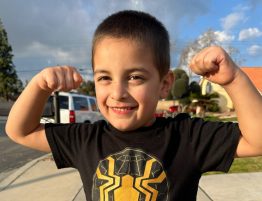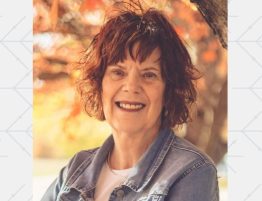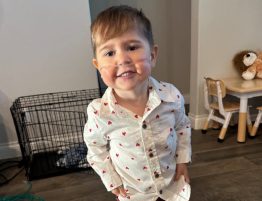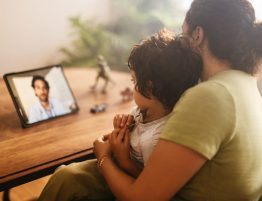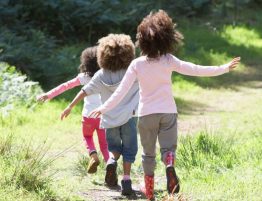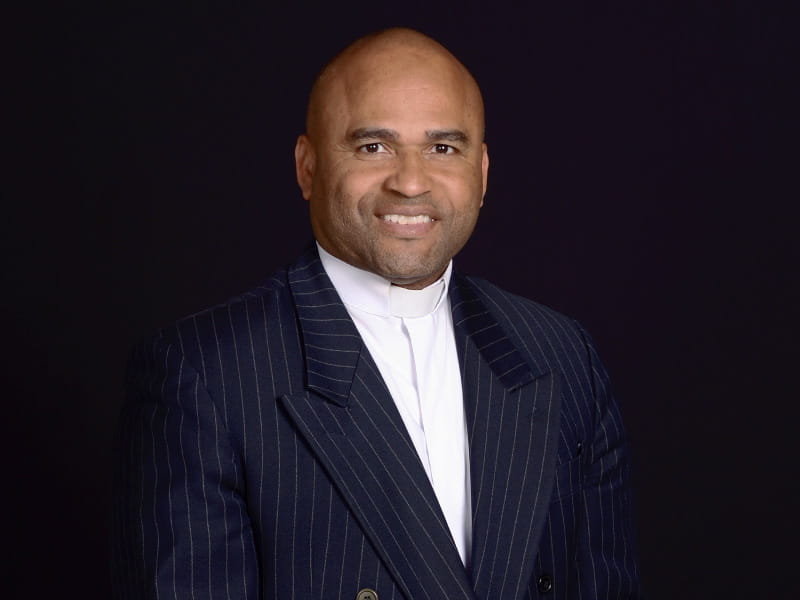
At the 142-year-old Shiloh Baptist Church in Trenton, New Jersey, the 1,500-member congregation has learned that tending only to spiritual needs is not enough.
So, the predominantly Black church works together through its nonprofit Shiloh Community Development Corporation to address spiritual, physical and mental health, said the Rev. Darrell Armstrong, who leads the church and is executive director of the corporation.
“You don’t find in most schools of religion an intense focus on bridging religion and mental health,” said Armstrong, who arrived at Shiloh in 2000 and has a particular interest in strengthening family health. His mother was addicted to cocaine, and he spent most of his childhood in foster care or living with relatives in Los Angeles.
Armstrong, mindful of the effects of family disruption and dysfunction, is pursuing a doctorate in social work with a focus on developing trauma-informed, resilient houses of worship.
“If you don’t focus on this need, you can get caught up in the business of running the church and not healing the church.”
Family health programs are run through the Shiloh Community Development Corporation, which was a finalist for the American Heart Association’s Empowered to Serve Business Accelerator Faith-Based program that helps to fund faith institutions working to address social influences on health such as race bias, education, housing and access to healthy foods and health care.
Shiloh’s Healthy Women, Healthy Families program, for example, works in conjunction with a statewide initiative to improve maternal and infant health. It’s directed at women of childbearing age and their families and aims to also reduce racial, ethnic and economic disparities.
Tracie Daves, a fourth-generation member of Shiloh, an assistant minister and longtime youth leader, hosts the gatherings and encourages women to attend. The first topic, discussed last year during five separate workshops, was about sudden infant death syndrome, or SIDS.
According to data from the Centers for Disease Control and Prevention, there were about 1,250 deaths caused by SIDS in 2019. Another 960 infant deaths were caused by accidental suffocation in bed, and 1,180 deaths were from an unknown cause. Sudden unexpected infant deaths were disproportionately higher among Black infants. The American Academy of Pediatrics offers guidance to reduce the rate of SIDS and other sleep-related infant deaths.
“The first thing I did was get up in front of the congregation and explain what SIDS was, because it’s a term that people don’t always understand,” Daves said. “Many people in the African American community don’t believe it happens to our people. Part of that is because it isn’t discussed. Some people might not even know that they had people in their family who had passed from it. But, yes, this actually does happen to our children.”
Daves also hosts lactation and breastfeeding seminars.
One of the church’s favorite rituals is the baby blessing service, not only to celebrate new arrivals into the nearly 600-family congregation, but to show parents best practices in child development, said Armstrong, who has expertise in the field.
From 2006 to 2009, he was director of Family and Community Partnerships for the New Jersey Department of Children & Families, which promotes the health, well-being and personal safety of children and families.
“I saw the strength of the home-visiting movement, going into homes of newborns to help guide the child’s health,” Armstrong said. “That’s also what congregational home visits are. It starts with the baby blessing, and then we have a peer-to-peer program with experienced parents helping new parents.”
Armstrong often visits the family at their home before performing a baby blessing.
“I want to see where people live, their living conditions, how many generations are together, etc., so I can better serve the child,” he said.
He briefly discusses with parents their own childhoods and talks about such things as the negative effect of corporal punishment.
Shiloh also has hosted several COVID-19 vaccination clinics conducted by the New Jersey Department of Health. The congregation, which has lost members to COVID, hasn’t met in person since the pandemic started.
“We have so many initiatives we want to get back to,” including a community and jobs resource center they hope to break ground on soon, Armstrong said. “I can’t wait to get going again.”
If you have questions or comments about this story, please email editor@heart.org.


